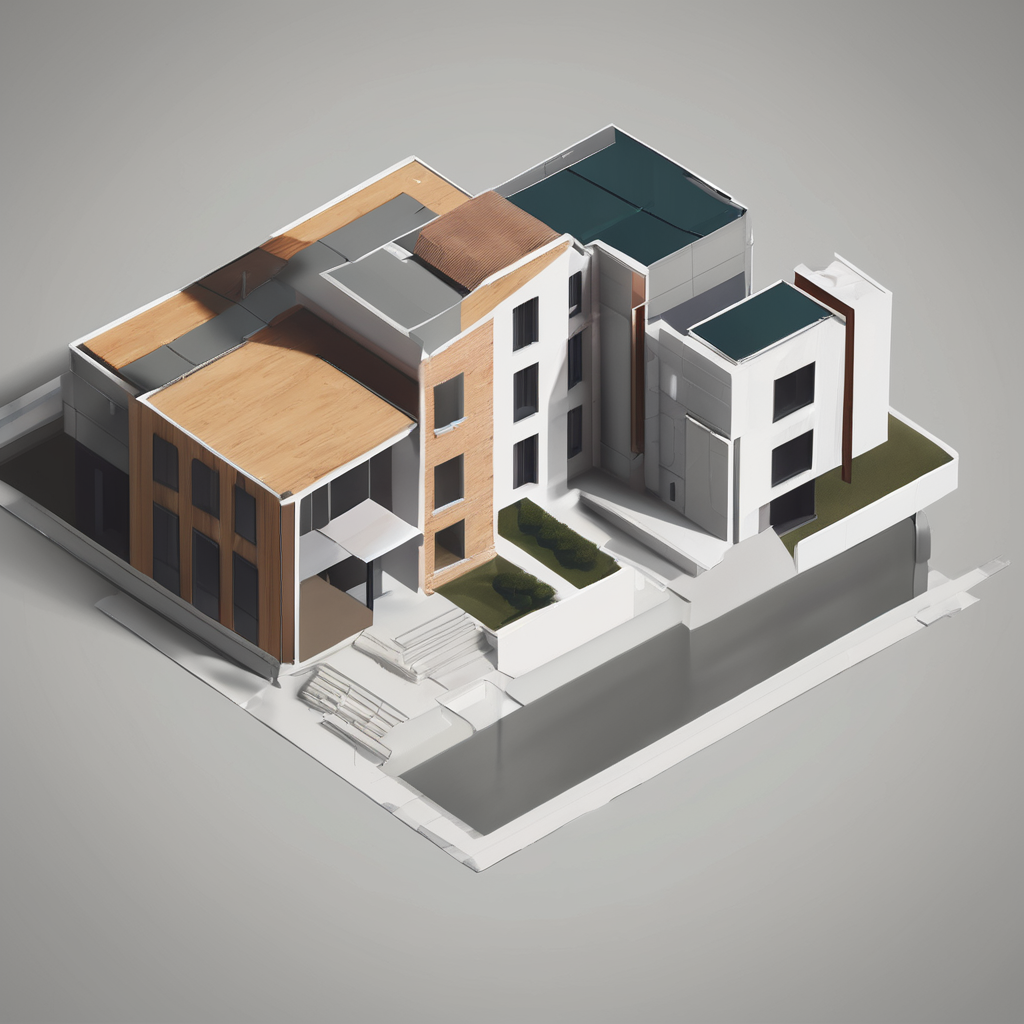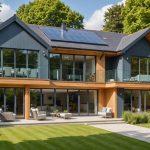Key Remodeling Trends Shaping the Future of UK Homes
When exploring future UK home remodeling trends, adaptability takes center stage. Experts note a clear shift towards designs that allow easy modification over time. This means spaces are planned with flexibility in mind, enabling homeowners to adjust rooms according to changing needs or lifestyles. For example, multi-functional rooms that can serve as offices, gyms, or guest bedrooms are becoming a staple in upcoming UK home renovations.
Another significant trend is future-proofing. Increasingly, homeowners prioritize sustainable materials, energy-efficient systems, and smart-home technology integration. These choices not only reduce environmental impact but also improve long-term value and convenience. Predictions for home improvement in the UK strongly highlight the rise of renewable energy installations and enhanced insulation as standard features.
Also to see : How Does Architecture Influence Home Value in the UK?
In essence, the emphasis is on creating homes that remain relevant and practical in a rapidly evolving world. Embracing these remodeling trends means investing in designs that anticipate future lifestyle changes rather than purely focusing on immediate aesthetic appeal. This forward-thinking approach is expected to shape many upcoming UK home renovations in the years ahead.
Innovations in Home Materials and Construction
Advancements in sustainable UK building materials are transforming how homes are designed and built today. Increasingly, homeowners and builders opt for eco-friendly alternatives that reduce environmental impact without compromising durability. Materials such as recycled timber, hempcrete, and reclaimed bricks are gaining popularity in eco-friendly home construction UK projects. These options not only lower carbon footprints but often enhance energy efficiency and indoor air quality.
Also to see : What Factors Influence the Design of a UK Home?
In addition to materials, the UK construction sector is embracing innovative techniques like modular building. Prefabricated components produced off-site allow faster assembly and less waste, aligning with sustainable goals. This new construction materials UK homes approach supports consistency and higher building standards, making it easier to integrate cutting-edge insulation and renewable energy features.
Such innovations are crucial in meeting stricter environmental regulations and consumer demand for greener living spaces. Embracing sustainable materials and modern methods enables the UK housing market to evolve responsibly, driving progress toward net-zero targets while providing homeowners practical, long-term benefits.
Smart Home Technology Integration
Smart home technology in the UK is rapidly evolving, driven by growing interest in home automation UK and the quest for convenience. More households are embracing connected home technology UK to streamline daily routines and enhance energy efficiency. For instance, smart thermostats and lighting systems can adjust automatically based on occupancy and preferences, reducing energy waste while boosting comfort.
Leading innovations in UK smart home trends focus heavily on security enhancements. Systems now integrate cameras, motion sensors, and smart locks that homeowners can monitor remotely via smartphones. This real-time access improves safety and peace of mind, especially for busy families or frequent travelers.
Personalised living experiences are another key aspect of connected home technology UK. Voice-controlled assistants can sync with various devices to tailor environments, such as dimming lights or playing music on command. These features show how smart homes are becoming more intuitive and user-friendly, reflecting preferences and habits effortlessly.
In summary, smart home technology integration in the UK is not just about gadgets but creating a cohesive ecosystem that balances energy management, security, and lifestyle customization seamlessly. This encourages wider adoption of home automation UK systems and advances connected home technology UK to new convenience levels.
Sustainable and Energy-Efficient Remodeling
Sustainable remodeling in the UK focuses squarely on energy efficient UK home upgrades that align with increasingly stringent environmental standards. Homeowners are embracing low-carbon home trends UK-wide, driven by both regulatory requirements and a growing commitment to reduce carbon footprints.
Key to this movement is the advancement of insulation techniques. Modern materials such as vacuum insulation panels and sheep’s wool provide superior thermal performance, significantly lowering heating demands. Alongside insulation, heating systems have evolved: heat pumps are replacing traditional boilers, offering a cleaner and more efficient alternative that harnesses ambient energy. These systems comply with the UK’s push toward decarbonizing residential heating by 2035.
Renewable energy installations, including solar photovoltaic panels and solar water heating, are becoming standard in sustainable remodeling UK projects. Not only do these systems reduce reliance on fossil fuels, but they also encourage energy independence. By integrating energy efficient UK home upgrades with smart controls, homeowners can optimize consumption, saving both money and carbon emissions.
In sum, sustainable remodeling UK strategies blend innovative insulation, cleaner heating, and renewable energy to create homes that meet today’s low-carbon home trends UK demands.
Space Optimisation and Multi-Functional Living
In the UK, maximizing functionality in compact homes has become essential due to limited space and rising property costs. Innovative layouts leverage every inch, blending form and function seamlessly. Small space design trends UK highlight solutions such as fold-away furniture, built-in storage, and convertible areas which transform one room into many. This flexibility allows residents to adapt their homes to changing needs throughout the day.
Adaptable and multi-use rooms are increasingly common. For example, living rooms double as home offices or gyms, reflecting the hybrid lifestyles many now lead. The ability to switch a space from work to leisure enhances overall quality of life, offering practicality without sacrificing comfort.
Achieving this requires a thoughtful approach to design. Flexible living spaces UK champion minimal clutter, smart storage solutions, and versatile furniture. These strategies ensure spaces remain multifunctional yet inviting. Ultimately, space optimisation in UK homes is not just about fitting more into less; it’s about creating environments that support diverse activities while maintaining style and convenience.
Evolving Aesthetics and Personalised Design
The UK home style trends have notably shifted towards embracing more personalised and customised home aesthetics. Homeowners increasingly seek interiors that reflect individual tastes rather than generic designs. This evolution is a response to the demand for unique spaces that resonate with personal stories and lifestyle needs.
Contemporary interior design future UK shows a blend of global influences and traditional British elements. For instance, minimalist Scandinavian styles merge with classic Victorian details, creating a harmonious yet fresh look. This fusion not only diversifies the aesthetic options but also tailors homes to owners’ cultural backgrounds and preferences.
Local design movements play a crucial role by encouraging sustainable materials and artisanal craftsmanship. These practices align with the broader trend of bespoke interiors, prioritising authenticity and environmental consciousness. A customised home aesthetic, therefore, accounts for both visual appeal and ethical considerations.
Ultimately, evolving styles in the UK reflect a broader trend of personalisation, where architecture and decor serve as an extension of the inhabitant’s personality. This approach enhances the emotional connection to spaces, advancing the future of UK interior design towards more thoughtful and meaningful environments.
Actionable Tips for Embracing Future Remodeling Trends
Staying ahead in home upgrade advice UK means focusing on improvements that offer lasting value. Begin by prioritizing energy-efficient solutions such as smart thermostats and LED lighting. These upgrades reduce bills and boost a property’s appeal.
Next, consult with experienced UK remodeling professionals who understand emerging trends and local regulations. Their insights can guide selections suited to your home’s style and future market demands. Professionals also help avoid costly mistakes and ensure quality craftsmanship.
To make your remodel truly future-proof, integrate flexible spaces adaptable to evolving lifestyle needs. Think about multi-functional rooms equipped with modular furniture and ample charging stations for tech devices. These features cater to both work-from-home setups and growing families.
Utilize reputable industry resources to stay informed about innovations, such as sustainable materials and advanced insulation techniques. Researching these options aligns your project with UK standards while enhancing comfort.
By combining expert advice, smart technology, and adaptability, you create a home upgrade designed to endure changes and remain relevant—key principles in effective UK remodeling tips.




